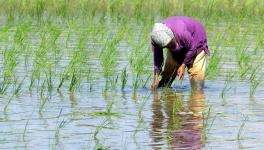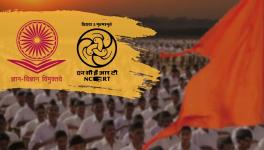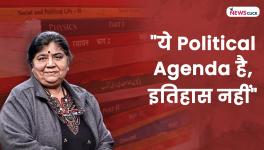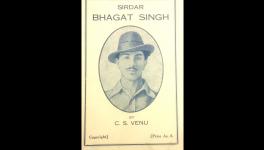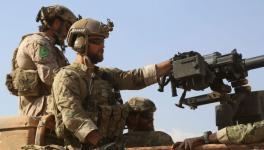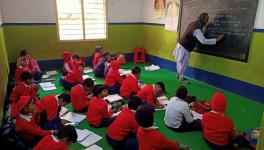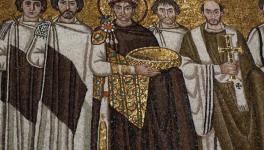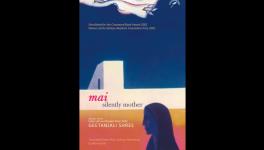“Truth and Reconciliation Require the Shedding of Aggressive Masculinity”
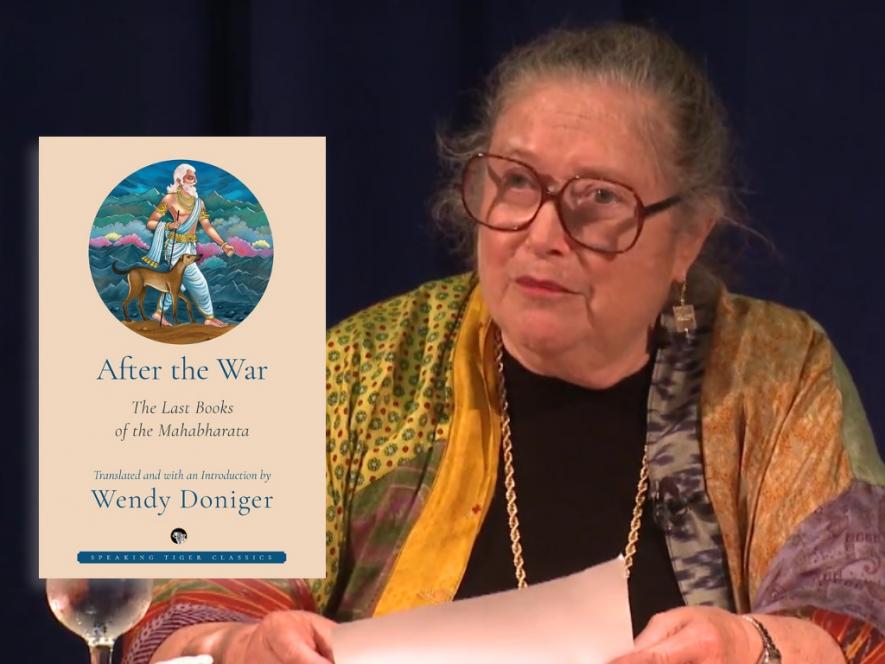
Translated by Wendy Doniger, After the War (Speaking Tiger, 2022), is a new translation of the final parts of the Mahabharata. Composed sometime between 300 BCE and 300 CE, the Mahabharata‘s 75,000 verses narrate the legendary battle between two branches of the Kuru clan of North India, the Pandavas and the Kauravas, and its aftermath. Storytellers in all of South Asia and far beyond have entertained and instructed through this greatest of epics for generations past. But, as the translator says in her introduction, they have generally ‘underra[ted] the high emotion, mythological inventiveness, metaphysical complexities, and conflicted characters that animate the last books [which]…tell a unified and self-bounded story of their own’.
In Book Fifteen (Ashramavasika, Living in the Hermitage) a wild-fire consumes Kunti, King Yudhishthira’s mother, and Dhritarashtra and Gandhari, the parents of the Kauravas, living out their final days in the forest. But did they die a meaningless death? Fate catches up with all, even gods, in Book Sixteen (Mausala, The Battle of the Clubs), when Lord Krishna embraces death and his Yadava clan is annihilated in a drunken brawl and an attack by bandits, in fulfilment of Gandhari’s curse. It is time for the Pandavas to ascend to heaven, in Books Seventeen (Mahaprasthanika, The Great Departure) and Eighteen (Svargarohana, Climbing to Heaven), but not before Yudhishthira is tested by a dog, to ascertain his steadfastness in the moral law.
Doniger, author of several acclaimed works and a distinguished translator of Sanskrit texts (including the Rig Veda, the Laws of Manu, and the Kamasutra), talks to writer Githa Hariharan about the book and more.
Githa Hariharan (GH): After the War seems to me a perfect title for your translations of the last books of the Mahabharata. It is impossible to make sense of these books without going back to the past – the great war, and how it has shaped the present the survivors must live through. It is equally important for the characters to face the future – the afterlife (or afterlives) ahead for each. Would you comment on this multi-stranded conversation in the text among distant and recent past, the present and the future?
Wendy Doniger (WD): The past certainly haunts these final books of the Mahabharata. The main characters are haunted by their karma, tormented by guilt for all the mistakes they made in the past, particularly violations of the code of war, such as killing sleeping warriors or killing a man engaged in fixing a chariot wheel. Kunti, mother of the heroes, is tormented by the memory of the way that she abandoned her new-born child, Karna, born when she was impregnated against her will by the Sun god; this seems to be a woman’s equivalent of a warrior’s sin of abandoning a comrade in arms. And aside from their inward shame and regret, many of the crimes committed by the heroes result in curses that finally bear fruit in these last books. Prominent among these is the curse of Gandhari, that Krishna will see his own family destroy one another, a curse that is then reinforced by the later curse of a group of sages, that the surviving warriors in Krishna’s family will get drunk and kill one another. So the past works not only in the minds of the actors in this drama, as a source of mental torment, but in the events of their lives, the source of their fatal final battle.
As for the future, the heroes constantly worry and debate about what will become of them when they die. The final books sketch out a complex scenario, not so much about rebirth as about heaven and hell: they must pay for their evil karma in hell and then be rewarded for their good karma in heaven.
GH: Talking of past and present, Time strides through these later books of the Mahabharata in different guises, the scariest of them the twisted avatar that brings on Kaliyuga. Would you tell us more about this concept of an era or earthly phase that you translate as the ‘twisting of Time’?
WD: Time stands for the inevitable entropy of all things; often when bad things start to happen in the Mahabharata, someone simply says, ‘Time! Time!’ The term kala-paryaya, literally the turning or twisting of Time, which is often cited as an explanation for an otherwise inexplicable catastrophe, means both that Time is turning back—that a curse from the past has come forward to work its effect now—and that Time has twisted in an evil way, that it has become per-verse (literally, ‘turned wrong’). The twisting of Time means both that Time twists certain events and that Time itself is twisted by other forces.
GH: One reason these later books resonate powerfully with us is the link with our own lived experience of Kaliyuga – not in the sense of ‘after’ the war, but indicating ‘the age of doubt and confusion’, riven by ‘enduring cultural dilemmas’ – undoubtedly the age of twisted time! What do you think these books tell us about our times? And a more ambitious (or silly) question, do they offer us any modes of survival we can adapt to our times?
WD: Yes, clearly it is always the Kali Yuga, has always been the Kali Yuga, and various civilizations merely imagine a Golden Age or Krita Yuga when people did not lie and kill and generally torment one another. So the feeling that things were better in the past — a feeling I myself certainly share, with regard to the United States as well as to India, not to mention the Ukraine and the whole globally warming planet – are in keeping with the ancient Sanskrit texts; and their advice about how to live in the Kali Yuga certainly applies to us now, and might seem worth seeking out. Unfortunately, what they mostly say is, just wait for doomsday and the next Golden Age; or, perhaps more usefully, they tell us that good people can act against the spirit of the Age, can follow the rules of morality and justice that once prevailed in the Golden Age, and so construct small, isolated Golden Ages even in the midst of the greater Kali Yuga.
GH: Honour, courage and all the virtues of ‘bull-like’ men get moved to the back burner in these books. What takes over? The search for redemption? Or would it be more appropriate to say that these books seek responses to the insistent questions, ‘What was it all about, the war, the violence and fratricide? And how do we live the aftermath – in other words, how do we carry on living?’
WD: Yes, I think these books are primarily concerned not so much with the various causes of the war but with the question of how to live in the aftermath of the war, and in particular how to live now, after the war, so that when you die you will go to heaven rather than hell. But there is also a great deal of talk, and blame, about the moral errors that not only caused the war but caused the heroes on both sides to violate the basic rules of warfare, and this too is part of what determines whether or not they will go to heaven at the end.
GH: Quite specifically, with honour and heroism emptied out, is there life after war for warriors?
WD: Everyone, even a supremely virtuous person like Yudhishthira, has made some moral errors, has violated honour and heroism; we see this when Yudhishthira’s four brothers and their wife Draupadi fall to earth one after the other as they try to climb to heaven, each brought down by a rather trivial human shortcoming rather than anything like a serious crime. Yudhishthira alone enters heaven with his human body – and even he must spend a brief time in hell before he can spend eternity in heaven, for having told one white lie. And so there very definitely is life after war, in both hell and heaven, even for warriors who have violated their own code.
GH: There is a great deal of grief in these books, both personal and public. Mothers like Gandhari weep for their dead sons; men like Arjuna grieve the loss of friend and guide, or the passing of their own life of action. In a more public way, subjects grieve, more formally, for the renunciation of their rulers, whether it is Dhritarashtra or, later, the Pandavas; and, of course, for entire clans like the Vrishnis wiping out the men by murdering each other. I want you to comment on several aspects of this all-pervading grief (occasionally regret, and not all that often, guilt). There seems to be a difference, for instance, between male and female grief.
WD: The men grieve for the times they violated the code of warriors. The women grieve for their failure to protect their sons, the warriors. The epitome of women’s grief is Kunti’s deep regret that she abandoned her newborn son Karna. The epitome of men’s grief, mentioned quite often, is their shame for the way they promised Abhimanyu, just a young boy, that they would back him up in battle but, in fact, left him alone to be outnumbered and slaughtered by the enemy.
GH: The nature of the text: it is huge, capacious, even excessive. The numbers are always large – whether it is Krishna’s women or the subjects who go to the forest to greet Dhritarashtra. There is the folding in quality you refer to, with a section ending where an earlier section began. Then there are the digressions into the frame story, or the explanations of linkages, or rules, or exceptions, such as, say, reaping the fruits of another’s karma. The numerous ‘explanations’ and justifications include contradictions as well. So, as in real life, is this an argument for a story with no end, to be told and retold in an attempt to complete it?
WD: I think the excessive, and often contradictory, explanations ultimately leave us with a feeling that no one knows all the answers to these great mysteries, that it is impossible to choose between contradictory explanations, that each of us must choose, among these many brilliant thoughts, the explanation that makes the best sense to us as individuals.
GH: This is such a roomy text, with space for all manner of people and communities. I notice though that you use the word ‘classes’, never ‘castes’. And I can’t recall coming across anyone other than Brahmins and Kshatriyas, some Vaishyas and Shudras. Where are the rest, whether in this life or the afterlife? In other words, how do we fit in the caste system – the theory and the practice – into the text?
WD: The Mahabharata was composed at a time when there was indeed already a class system in India: there are four classes, varnas, just as you enumerate them. But there is not yet anything like the complex system of thousands of castes, jatis, that arose later in India. There are a few ‘unclean’ tribes, hunters and charioteers: Karna wrongly thinks he was born into a caste of charioteers, and Ekalavya is disqualified as an archer because he was born into a caste of hunters. But the caste system as a whole plays no part in the main story.
GH: The text introduces a speculative note when it suggests the possibility that there truly is an end to the aftermath—that it is possible to go to a place beyond heaven and hell. Not only does this seem to overturn the received wisdom of rebirth on earth on the basis of good or bad karma, but it also implies that this place beyond heaven and hell is indescribable. Should we see this as openness to possibility? As a hedging of bets? Or as a layering of different theories of the afterlife at different points in time?
WD: The Mahabharata is self-consciously archaic. It imagines a war that took place many centuries before the time in which the text was actually composed. And it imagines an archaic view of the afterlife in which warriors go to heaven and join with the gods (plural) when they die, and sinners (including sinful warriors) occasionally go to hell for a while, before or after or instead of going to heaven. All of this long pre-dates the system of karma and rebirth developed in several earlier parts of the Mahabharata, and casually referred to on numerous occasions. But this system is finally superseded in the final books of this great text by a reversion to the more archaic view of the afterlife – in which one’s karma determines not one’s rebirths on earth, but simply how long one will dwell in hell and in heaven. Side by side with the complex pantheon of what are essentially Vedic gods, ruled by Indra, there are also, throughout the whole text, passages that imagine a single, transcendent god, often identified with Krishna. And there are brief, cryptic references to such a god, and to a world beyond all worlds, in the final books as well, as if the text were already looking forward to a very different theology that would only evolve fully after the time of the Mahabharata.
GH: The nature of the ‘author’: on a stage full of complex characters, I found Vyasa the most fascinating example of what I can only call a composite. He is author, curator, wise man, a major character in his own story. The text never leaves him as it does us earthly authors once we are done, nor does he ever leave it. He is playwright, actor, stage manager and more. But can we also see him as a disruptor, a necessary disruptor, of the sanctioned order? I am thinking of his mixed-up origins; his abandonment on an island; and also how he, old and ugly and smelly as he is, is called upon to impregnate the royal brides. It is tempting to read Vyasa as a rich treatise on what an author means, or could mean. Is this all too farfetched?
WD: Vyasa is indeed a fascinating combination of an author and a character in search of an author, to cite Pirandello. His interventions occur most crucially at the beginning and the end of the great text. In the beginning, he begets the fathers of both of the rival families in the war (Pandu and Dhritarashtra), as well as a third son, a mysterious combination of holy man and servant (Vidura). But Vyasa creates all three of these sons with the crucial flaws that will lead to their tragic inability to rule, and therefore to the war of succession. At the end, he comforts the grieving parents and wives of the dead warriors by conjuring up a fabulous vision of their dead sons, who emerge from the river to spend a night of joy with their wives and families before returning to the river and to their afterlives; he comforts Kunti by absolving her of the sin of having abandoned Karna; and he explains to everyone that the apparently dead warriors are actually gods who became incarnate as mortals just for a while and are now happy to be back in heaven. So he is indeed a disruptor as well as a facilitator, but I think his powers are so extraordinary, and indeed so ambiguous, that no human author could ever dare to take him as role model.
GH: Finally, what exactly is the prescription for peace of mind and peaceful co-existence in the afterlife? How do the heroes achieve the state of reconciliation with, and acceptance of, earthly enemies? Also, I can’t help noticing that as on earth, here too they get mapped so that like merge with like – the Vasus go to the Vasus, the fiery ones to Fire and so on. There is no ‘mixed’ location or community, even among the gods. Am I being too literal or is this an inevitable reflection of the order imposed on earthly life?
WD: The final lesson that the warriors must learn in order to achieve final peace of mind in the afterlife involves an education in peaceful co-existence. Though each dead warrior finds his own family in heaven, there are numerous references to the need for all of them to be at peace with the people who, in life, had been their enemies but are no longer their enemies, simply because the concept of enmity is meaningless in heaven.
One of the most important ways in which life in heaven differs from life on earth is that, as the gods explain to the newly dead heroes who arrive in heaven, there is no manyu in heaven. Manyu is an untranslatable word that encompasses the concepts of bravado, pride, hot temper, aristocratic arrogance, aggressive volatility, and machismo. More particularly, manyu implies that an insult must be avenged. The dead warriors, first seen in a vision, then met together in heaven at the end of the book, no longer have manyu. Heaven is where manyu goes to die. The happy warriors whom Vyasa brings to earth on a brief visit from heaven have given up their manyu. At the end of his life, reconciled at last with his former enemies, Yudhishthira says that there is no manyu left in him. And finally, only when Indra urges Yudhishthira to give up the manyu that is keeping him from sharing heaven with his enemies, and only when the former enemies relinquish their manyu in heaven, do they find their final peace. To the extent that manyu is the essence of masculinity, it would seem that one of the things that the Mahabharata heroes must slough off along with the rest of the mortal coil is their very masculinity.
In retrospect, manyu turns out to have been at the heart of the problem of devastating human strife, as well as divine anger (for even Krishna gives way to manyu when he sees his sons murdered and he forgets his vow not to participate in the final bloodbath: he kills more people than anyone else). That people who have killed one another’s sons and fathers and brothers need to give up their manyu, to renounce revenge in order to live together in peace in heaven, is this text’s answer to a question that continues to plague us to this day, the problem of truth and reconciliation, the problem of ending the chain of retributive violence.
Get the latest reports & analysis with people's perspective on Protests, movements & deep analytical videos, discussions of the current affairs in your Telegram app. Subscribe to NewsClick's Telegram channel & get Real-Time updates on stories, as they get published on our website.









